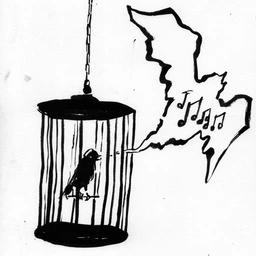Instructions unclear, am currently chilling in a hot tub with three big hairy men… when do the bears show up?
- 0 Posts
- 11 Comments

 3·2 months ago
3·2 months agoHow are you defining authority? My understanding is it’s specifically referring to “power over”; via implicit/explicit coercion, threat, manipulation, and so on. I don’t see why opposition to such uses of power, and the desire to build alternative systems which don’t rely on such means, has to be a negative or “naive” or “unrealistic” thing.

 2·2 months ago
2·2 months agoAre there no anarchists on hexbear?

 2·2 months ago
2·2 months agoThey can use the state to do that for them

 7·2 months ago
7·2 months agoand the company
Surely the company would never be just as authoritarian as the state!
~ [cue anti-consumer subscription models and user policies]

 8·5 months ago
8·5 months agoYou could share this sublemmy’s pinned post, or the megathread it links to:

 10·7 months ago
10·7 months agoPeertube?

 241·7 months ago
241·7 months agoIs noone else gonna point out the absurdity that if the guy had been 1 year older, legally speaking there would’ve been nothing wrong?
The problem here is the grooming (which I think it’s worth noting that adults can be victims of as well), the abuse of power dynamics, and particularly in this case the exploitation of another’s inexperience for personal gratification.
But the article instead focuses on how the kid was “affected” by the teacher’s “criminal actions”, but then essentially just describes the kinds of consequences caused by the social stigma of student-teacher relationships. But this also happens in university, where it also carries negative social consequences, but not legal ones.
My point is simply that the legal system is a flimsy caricature of morality/ethics, and in articles like these it really shows.

 2·7 months ago
2·7 months agoThe deregulation march you’re talking about is neoliberalism, and it hasn’t just affected USA. And in a sense neoliberalism is capitalism’s response to regulation.
It’s not that regulation doesn’t work per se, it’s that the (political) hierarchy through which it functions is susceptible to being taken advantage of, and inevitably it will be (*has been) taken advantage of by the capitalist class to protect their economic hierarchy.
For democracy to truly represent the people it’d need to be federated from the ground up through free association. Large scale organisation and cooperation would be ephemeral, existing when/if the need arises and dissolving as soon as projects are concluded (or cancelled). But within the rigidity of the current system(s), where power is consolidated at the ‘top’ through processes we’re lead to believe are necessary for ‘order’ (when their real purpose is of course control), horizontal forms of social organisation seem impossible (I like how Anark calls this - “hierarchical realism”).

 16·7 months ago
16·7 months agoCan we please stop pretending “regulation” is all that effective. It’s been tried, and has resulted in corrupt bureaucracy or given way to neoliberalism (and corporate bureaucracy).
What we need is a radically different system where the power truly is in the hands of the people, and not just nominally like in representative democracy (and which is completely lacking anyways in most workplaces). And what this requires is the construction of fundamentally different modes of production and human interrelation that will not resemble what we’ve got now, neither economically nor politically nor socially. Regulating capitalism won’t get us there.

Absolutely! He simply has a very original take on “freedom”, but we all know that’s a tricky word to pin down, so don’t think about it too much, and leave it to the big dogs to tell you when your freedom is being protected.